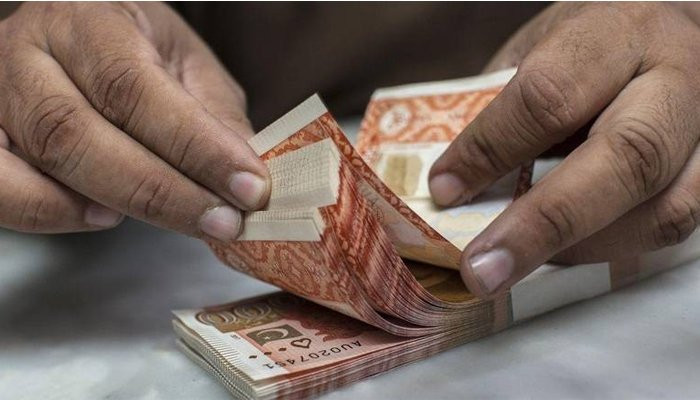
Amid the National Austerity Committee’s recommendation to review the practice of dolling out billions of rupees to parliamentarians, the government decided to further increase the discretionary spending budget to a whopping Rs90 billion.
As the country is also at the risk of default, the National Austerity Committee recommended slashing the federal cabinet to just 30 members from the current almost 77, including special assistants to the prime minister.
The committee sought 10% decrease in the salary and allowance of legislators as well as 15% cut in the current expenditure of ministries.
The committee finalised some useful recommendations and it was now up to the government to either implement them or put in the cupboard, as had been done in the past.
Sources in the Ministry of Planning said that the government decided to give another Rs3 billion to the parliamentarians by slashing the budget of an educational institute and the Innovation Support Project – speaking volumes about the priorities of the ruling alliance.
The government decided to slash the Rs1.4 billion budget of the Pakistan Institute of Development Economics (PIDE), Rs800 million allocation for the construction of the Planning House and another Rs800 million from the budget of the Innovative Support Project.
The development came amid the National Austerity Committee’s under-consideration proposal to stop such funding to the parliamentarians’ schemes.
The committee, which met for the consecutive second day on Tuesday under the chairmanship of Nasir Khosa, prepared a draft of its recommendations that will soon be sent to Prime Minister Shehbaz Sharif.
A member of the committee told The Express Tribune that the committee finalised a recommendation where it will ask the government to stop execution of the development projects through the members of the Senate, National Assembly and the provincial assemblies.
Such spending was prone to corrupt practices, misuse and often led to wastage of resources, although these schemes were needed at the village level and could not be executed due to the absence of local governments.
For the current fiscal year, the PDM government had allocated Rs70 billion for the parliamentarians’ schemes, which a few months ago was increased to Rs87 billion, giving each MNA Rs500 million. However, now it had been decided to allocate another Rs3 billion to fund more schemes ahead of the next general elections.
The country’s precarious economic situation, which raised the default risks, did not permit spending even Rs1 on projects where there were high risks of misuse and the ultimate objective was gaining political benefits.
The austerity committee has suggested that the planning ministry should carry out a comprehensive review of the development projects in accordance with the constitutional mandate. If this recommendation was implemented, at least one-third development budget could be spared for some other productive purposes.
The austerity committee was of the view that the Centre should restrict itself to only those development schemes that fell in its domain. However, contrary to this, PM Shehbaz on Tuesday inaugurated a youth business and agriculture loans scheme. He already announced a youth laptop scheme and an internship scheme.
The committee might ask the PM for a complete ban on creation of new administrative units for two years. Moreover, the administrative units created in the recent past should be reviewed, according to another recommendation. This could lead to withdrawal of the district status to Mianwali. The small administrative units were encouraged worldwide to efficiently provide services to the people.
The austerity committee also finalised a proposal to restrict the subsidies to only targeted people – contrary to this Shehbaz, a few months ago, gave Rs118 billion to the elite exporters where nearly 35 per cent of the funds were used against production used domestically.
There was also a proposal that provinces should bear the cost of subsidies, particularly for the BISP. It also wanted the federal government to end financing of the provincial nature projects under the Higher Education Commission.
To reduce the cost of debt, the committee said that the government should take long-term loans at fixed rates during low-interest times –a suggestion that could not be implemented immediately.
It finalised a proposal that one plot should be given to each civil servant and other plots should be put up for open auction which would apply to all autonomous as well as semi-autonomous corporations. But the Capital Development Authority did not have land to give even one plot. This recommendation seemed ill-conceived as there was a need to give homes on instalments instead of facilitating this real estate business.
It recommended reducing all allowances to only 25% - a proposal that might not sit well with the judiciary, bureaucracy and armed forces –thus –unlikely to be implemented.
It also wanted a ban on foreign travel except obligatory visits – a proposal that might not be liked by ministers from the Pakistan Peoples Party who were frequent flyers.








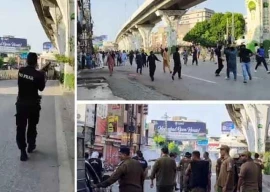

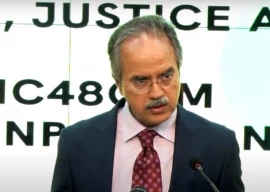

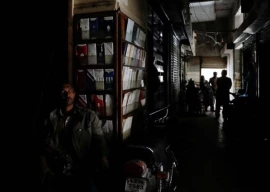
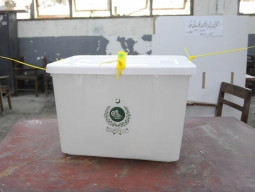







COMMENTS (8)
Comments are moderated and generally will be posted if they are on-topic and not abusive.
For more information, please see our Comments FAQ